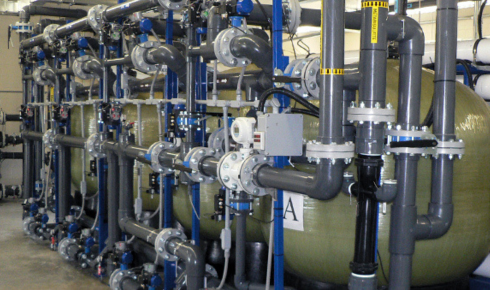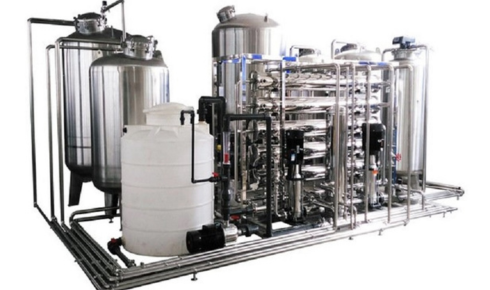There’s something oddly comforting about knowing the earth under your feet is helping heat and cool your home. Unlike the unpredictable Oklahoma skies—where a perfectly sunny morning can turn into a hailstorm by dinner—geothermal systems have this steady, grounding presence. They hum quietly beneath your yard, pulling energy from the soil and rock layers, keeping your living space balanced and comfortable. But let’s be real: no system is flawless forever. And when something goes wrong with a geothermal unit, it feels like a different ballgame than your average AC tune-up.
I’ve talked to homeowners who say they didn’t even realize their house ran on a geothermal system until it stopped working. That’s when the questions start piling up. Do you call a regular HVAC company? Do you need someone with a specialized license? How serious is the problem—minor inconvenience or big-ticket breakdown? Let’s dig in (pun intended).
The Unique Nature of Geothermal Repairs
Traditional heating and cooling systems are mostly above ground. You can pop the hood, so to speak, and see what’s happening. With geothermal, the heart of the operation—the loop buried under your lawn or driveway—is hidden from view. That underground loop is filled with fluid that moves heat in and out of your home. If something clogs, leaks, or loses efficiency, it’s not as simple as swapping out a filter.
Here in Oklahoma, we’re no strangers to temperature extremes. That swing from icy winters to scorching summers makes geothermal systems work extra hard. Over time, that stress can reveal itself in the form of pressure issues, leaks, or reduced performance. And unlike a squeaky fan belt in your car, it’s not always easy to diagnose the issue without a professional eye. That’s where specialized technicians step in—the folks trained to handle the nuances of geothermal heat pump repair Oklahoma homeowners depend on when the comfort of their home is at stake.
When Emergencies Happen
Let’s paint a picture. It’s late July. The air outside feels like it could melt asphalt, and your geothermal unit suddenly quits. The thermostat climbs, the house turns into a sauna, and you start Googling for help at midnight. This is the moment when “I’ll just wait until morning” doesn’t cut it.
That’s why having access to reliable emergency geothermal repair services matters more than most people realize. Unlike a typical HVAC failure, geothermal issues sometimes hint at bigger complications—like fluid loss in the ground loop or pump malfunctions. Waiting days to fix the problem can mean higher energy bills, added strain on the system, or even long-term damage. A good emergency team knows time isn’t just money in these cases—it’s your comfort, your family’s safety, and sometimes even the integrity of your home.
The Puzzle of Loop Repairs
Here’s the part that surprises many homeowners: sometimes the problem isn’t with the pump or the controls inside your house—it’s with the loop itself. And yes, that means underground.
Loop systems, whether horizontal or vertical, are designed to last for decades. But just like any infrastructure buried in soil, things can happen. Shifting ground, tree root interference, improper installation, or material wear can all lead to leaks or inefficiencies. Unlike a broken water pipe that leaves a puddle in your yard, geothermal loop issues can be subtle. You might notice higher bills, inconsistent heating and cooling, or strange noises from the system.
When that happens, professionals bring in specialized equipment to detect the problem without tearing up half your lawn. It’s a delicate job, balancing technology and experience. Choosing a qualified geothermal loop repair service ensures the issue is fixed right the first time—because nobody wants to go through the headache of repeated digging and patching.
Why Local Knowledge Matters
Something I’ve learned living in Oklahoma: not all soil is created equal. Clay-heavy ground reacts differently than sandy soil, and moisture levels can change dramatically depending on the season. These details matter when diagnosing geothermal problems. Local technicians understand the quirks of the region—how drought affects underground loops, or how certain drilling techniques hold up better in rocky areas.
That local expertise is often the difference between a repair that lasts and one that causes frustration down the road. It’s also why calling in someone from out of state, or relying on a company without geothermal-specific experience, can end up costing you more in the long run.
What Homeowners Can Do
You can’t exactly head out back and check your loop like you’d check your car oil. But there are signs you can watch for:
- A sudden spike in your electric bill without a change in usage.
- Inconsistent comfort—rooms that won’t stay warm or cool.
- Odd noises or frequent cycling of the system.
- Unexplained damp spots in the yard near where loops are buried.
Catching these early doesn’t solve the problem, but it gives you a head start when explaining the issue to a technician. And trust me, any pro will appreciate a homeowner who noticed the details before things spiraled.
Wrapping It Up
At the end of the day, geothermal systems are incredible pieces of technology—quiet, efficient, and eco-friendly. But like anything worth having, they need care. And when things go sideways, it pays to know who to call and what to expect. Whether it’s a midnight breakdown, a subtle loop issue, or a stressed-out pump, having the right repair team in your corner is what keeps your home comfortable year-round.





